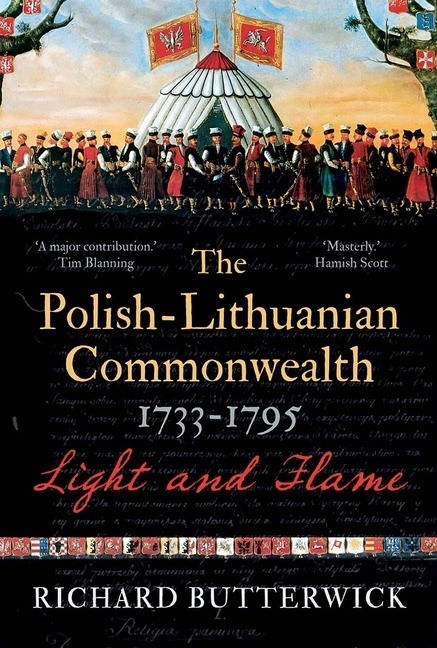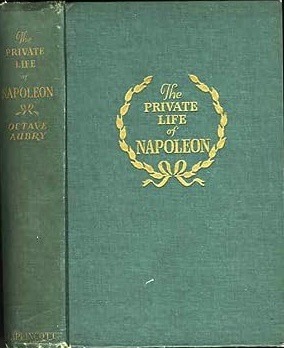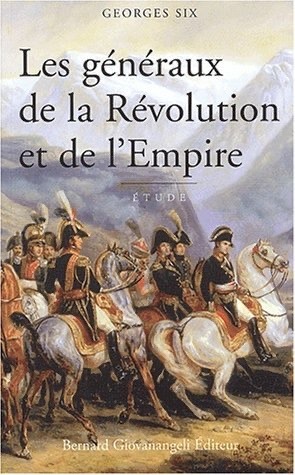#Richard Butterwick
Text
Books about Napoleonic era (and Polish history) - 3
Good day, dear all, and let me share with you some books I've read recently.
And because today is the birthday of Tadeusz Kościuszko I'll start with a biography of him The Peasant Prince, by the American historian Alex Storozynski:

2. One more position about the Polish history, in English, I'd like to recommend you is Richard Butterwick's The Polish-Lithuanian Commonwealth, 1733–1795: Light and Flame, dedicated to the reigns of Polish-Lithuanian two last kings, Augustus III Wettin and Stanisław August Poniatowski:

From the topic of Polish history let's switch to the French one.
3. One more addition to my collection of Talleyrand's biographies was this one, written by Robin Harris:

4-5. Then, there were two books about Napoleon's private life, by Octave Aubry and Sigrid-Maria Größing:


6-7. A study on the topic of French revolutionary and imperial generals, by Georges Six, and George Nafziger's Imperial Bayonets. (These were books with lots of military details, so I can't say I've enjoyed them thoroughly, rather not belonging to their target audience))


8. And this is a book I really liked, The anatomy of Glory by Henry Lachouque! And though its subtitle (Napoleon and his Guards) kinda states the book will be focused on the Imperial Guards, in fact its topics turned out much more wider, including information on Napoleon himself, France and even some details of the usual life of that times:

9. The book majority of you have already read, The Iron Marshal, a biography of Louis Nicolas Davout by John Gallaher:

10-11. And the last but not the least - two books on Murat. The first is a book by the French historian Jean Tulard and the second is an impressive work of Sarah Hammel @joachimnapoleon.


Thanks a lot, Sarah, for letting as see Joachim Murat through his letters, from his own point of view!
#books#napoleonic era#history books#kościuszko#tadeusz kościuszko#Alex Storozynski#Polish-Lithuanian Commonwealth#Richard Butterwick#Talleyrand#charles maurice de talleyrand périgord#Robin Harris#napoleon#napoleon bonaparte#Octave Aubry#Sigrid-Maria Größing#Georges Six#George Nafziger#Henry Lachouque#Louis Nicolas Davout#John Gallaher#joachim murat#jean tulard#Sarah Hammel
38 notes
·
View notes
Text
Western European and Domestic Historiographical Contexts
The anti-Jesuit literature in Poland–Lithuania was not born in a historical (or
historiographical) vacuum. Indeed, the earliest Jesuit historiography outside
the Society—what I call trans-Jesuit historiography as opposed to cis-Jesuit
historiography that Jesuits themselves created from the early times—was
born within the context of confessional and/or political controversy (just as in
Poland–Lithuania, as we shall see below), starting probably with the German
Lutheran theologian Martin Chemnitz (1522–86), who in his Theologiae jesuitarum praecipua capita (Main tenets of Jesuit theology, 1562) describes
the Jesuits as a papal offspring that invaded Germany, spreading their nests
throughout. As we shall see below, Chemnitz’s image of the Jesuits, sometimes
tweaked and modified, was very popular among Polish anti-Jesuit writers.
Similar anti-Jesuit propaganda also pervades the work of the French
Catholic political writer Étienne Pasquier (1529–1615), who in his influential
Le Catéchisme des j��suites (Ville-Franche, 1602)—whose first English modern
annotated translation has been published recently in the Brill’s book series of
11 For further reference on the history of this period, see Józef A. Gierowski, The Polish–
Lithuanian Commonwealth in the XVIIIth Century: From the Anarchy to Well-Organized
State (Cracow: pau, 1996); Robert I. Frost, “‘Obsequious Disrespect’: The Problem of
Royal Power in the Polish–Lithuanian Commonwealth under Vasas, 1587–1668,” in The
Polish–Lithuanian Monarchy in European Context, c.1500–1795, ed. Richard Butterwick
(Basingstoke: Palgrave Macmillan, 2001), 150–71; Andrzej Sulima Kamiński, Republic vs.
Autocracy: Poland–Lithuania and Russia 1686–1697 (Cambridge, MA: Harvard University
Press, 1993); Anna Grześkowiak-Krwawicz, Queen Liberty: The Concept of Freedom in the
Polish–Lithuanian Commonwealth (Leiden: Brill, 2012); Dorota Pietrzyk-Reeves, Polish
Republican Discourse in the Sixteenth Century (Cambridge: Cambridge University Press,
2020); Urszula Augustyniak, Informacja i propaganda w Polsce za Zygmunta iii (Warszawa:
pwn, 1981); Augustyniak, Wazowie i “królowie rodacy”: Studium władzy królewskiej w
Rzeczypospolitej xvii wieku (Warszawa: Semper, 1999); Agnieszka Pawłowska-Kubik,
Rokosz sandomierski 1606–1609 (Toruń: Wyd. umk, 2020); Edward Opaliński, “Rokosz
Zebrzydowskiego: Element antysystemu ustrojowego czy nieudana rewolucja?,” Przegląd
sejmowy 25, no. 4 (2017): 53–69
0 notes
Quote
Both kings failed to achieve their aims, but only Louis XVI met with failure at a time when his nation was sovereign. Acting within the old republican political culture, Stanisław August held weaker cards overall, but he played them much better. In the years 1791-1792 he simply triumphed politically, especially taking into consideration the situation at the beginning of the Four-Year Sejm. Louis, despite the existence of significant backing of folk royalism in France, despite the common conviction of almost all the revolutionaries in 1789 that the country needed a constitutional monarchy, did not triumph over the ensuing difficulties. One can risk the statement that a French king with the abilities of Stanisław August would have at the very least survived on the throne.
Richard Butterwick, ‘“The king with the nation, the nation with the king”. A comparison of Stanislaw August Poniatowski and Louis XVI, 1788-1792′ („Król z narodem, naród z królem”. Porównanie Stanisława Augusta Poniatowskiego z Ludwikiem XVI w latach 1788-1792)
#Richard Butterwick#Louis XVI#French Revolution#Stanisław August Poniatowski#Polish history#18th century
13 notes
·
View notes
Quote
At this time the king was in a turret of the great Tower of London, and saw the manor of the Savoy and the Hospital of Clerkenwell, and the houses of Simon Hosteler near Newgate, and John Butterwick's place, all in flames. He called all the lords about him into a chamber, and asked their counsel as to what should be done in such a crisis. But none of them could or would give him any counsel; and so the young king said that he would order the mayor of the city to command the sheriffs and aldermen to have it cried within their wards that everyone between the age of fifteen and sixty, on pain of life and limb, should go next morning (which was Friday) to Mile End, and meet him there at seven of the bell. He did this in order that all the commons who were stationed around the Tower would be persuaded to abandon the siege, and come to Mile End to see him and hear him, so that those who were in the Tower could leave safely at their will and save themselves as they wished. But it came to nothing, for some of them did not have the good fortune to be saved.
[Richard offers a pardon for everyone who will leave and urges them to submit their grievances in writing]
All this time the king remained in the Tower in great distress of mind. And when the commons had heard the bill, they said that it was nothing but a trifle and mockery. Therefore they returned to London and had it cried around the city that all lawyers, all the men of the Chancery and the Exchequer and everyone who could write a writ or a letter should be beheaded, wherever they could be found. At this time they burnt several more houses within the city. The king himself ascended to a high garret of the Tower to watch the fires; then he came down again, and sent for the lords to have their counsel. But they did not know how to advise him, and were surprisingly abashed.
Anonimalle Chronicle, trans. R.B. Dobson
#dobson says in the notes that richard's initiative here seems implausible#idk though i like it#i think about this a lot#richard ii#i should have a tag for the peasants' revolt#johan the mullere hath ygrounde smal smal smal
1 note
·
View note
Text
INNOVATIVE INSURANCE PRODUCTS AND M&A RISK
INNOVATIVE INSURANCE PRODUCTS AND M&A RISK

By Richard Butterwick
Dealmakers’ appetite for transactions involving publicly listed companies remains strong — 2016 saw an increase in deal volume, a trend which continues into 2017. However, deals remain challenging, partly due to limitations on bidder deal protections and financing requirements. In response, innovative products have been developed by the insurance industry of provide…
View On WordPress
0 notes
Photo

On this great day of Wednesday, February 21, 2018 on the blue marble.
We note that:
Poland shares no responsibility for the Holocaust
Letters: Anna Mlynik-Shawcross and Richard Butterwick-Pawlikowski respond to a Guardian editorial that suggested Poland could not wholly escape blame for the Holocaust
0 notes
Text
Kościuszko: an uncomfortable symbol
Kościuszko: an uncomfortable symbol
Professor Richard Butterwick-Pawlikowski, Chairholder of the European Civilisation Chair at the College of Europe in Warsaw, tells Poland.pl about the significance of Tadeusz Kościuszko for Poland, Europe and the world.
POLAND.PL: 200 years ago, on 15 October 1817, Tadeusz Kościuszko, an engineer, military commander, leader of the anti-Russian uprising and anti-Prussian insurrection of…
View On WordPress
0 notes